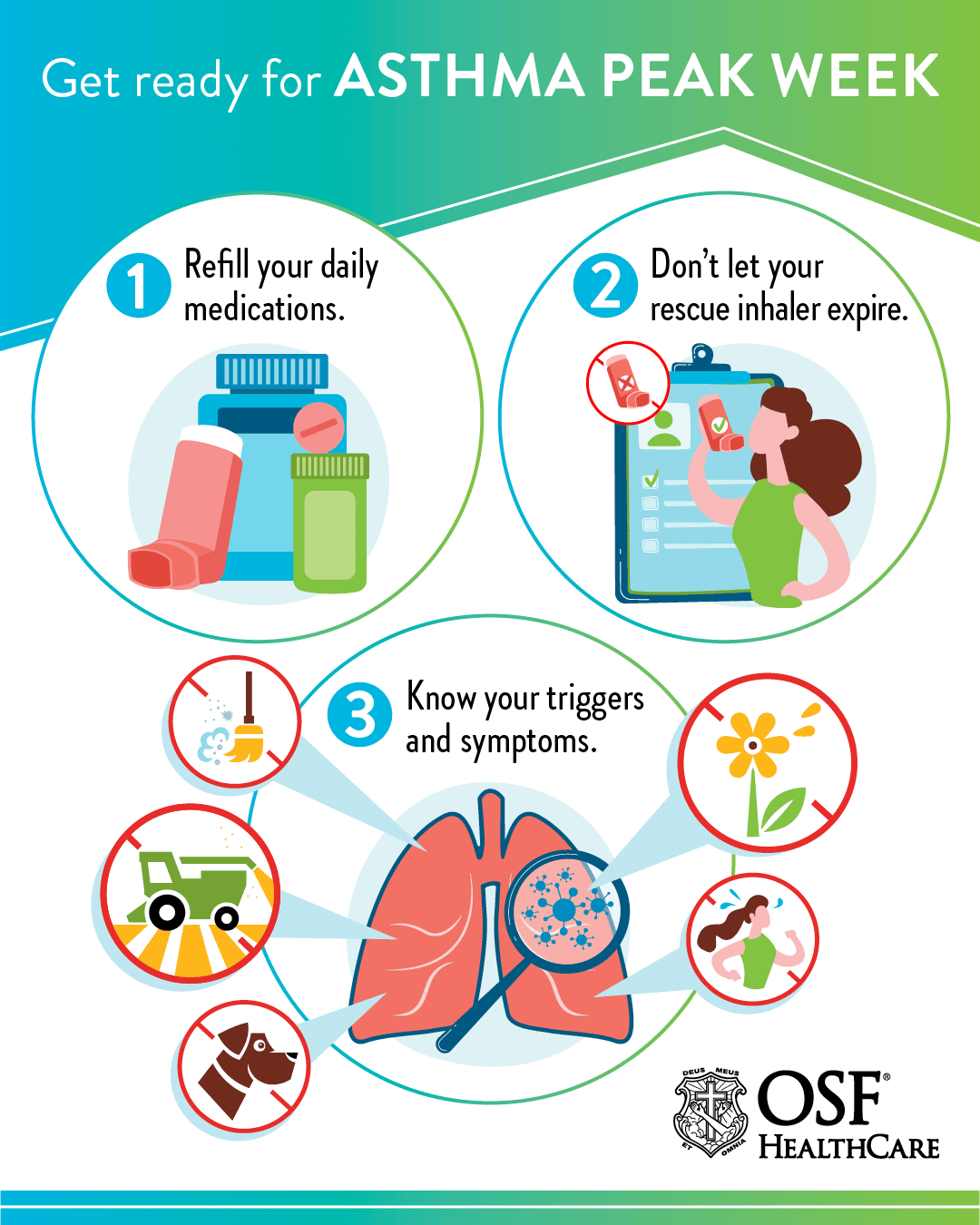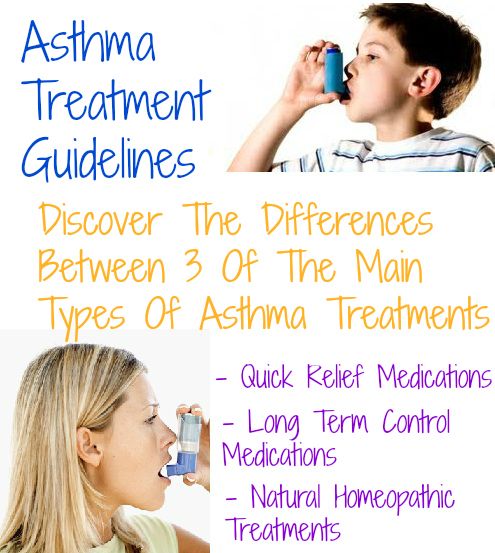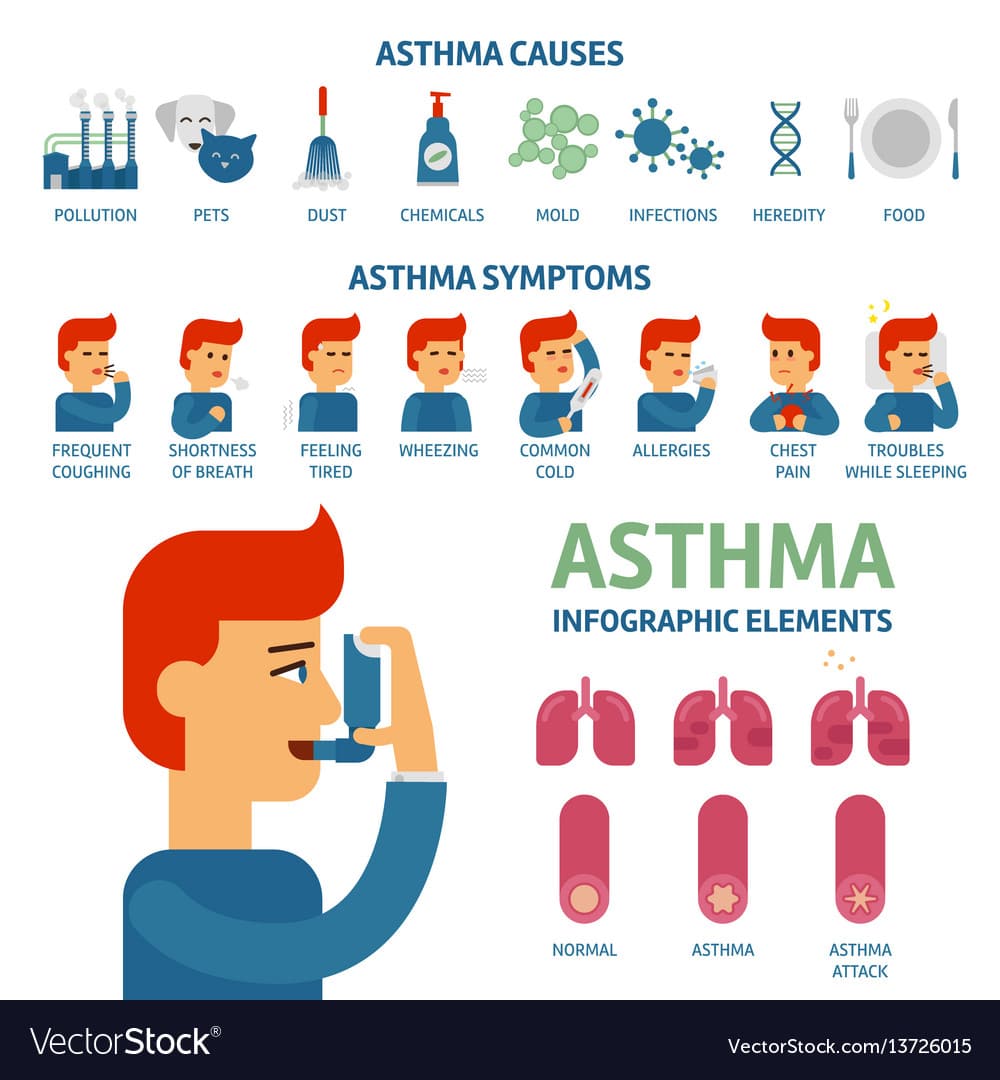How Is Allergic Asthma Diagnosed
There are several tests that your healthcare provider can do to diagnose allergic asthma. To pinpoint allergies, your provider may do a blood test or a skin test. In these tests, your provider is looking for the effect of the allergens on your body. For a skin test, possible allergens may be applied to small areas of your skin to see how you react to each one. This can be uncomfortable, but it will show your provider what might be causing the reaction.
Your healthcare provider may also do a few tests to diagnose your asthma. These tests are used to make sure that its asthma thats causing your symptoms and no other medical condition. Tests to diagnose asthma can include:
If you have allergic asthma, your symptoms are typically triggers by something you breathe in. Determining what allergen triggered your symptoms is another part of the diagnosis process for allergic asthma. Try to keep a journal or notes of what happened when you experienced asthma symptoms. If you were outside by freshly cut grass, it could be a pollen allergy. If you were petting a dog, it could be pet dander. Figuring out what you inhaled when your symptoms started can help your provider create a plan to control your allergic asthma.
How Do You Treat Allergic Asthma
There is no cure for asthma, but fortunately symptoms can be effectively managed and treated. Once your allergist identifies what is triggering your allergic reactions, through a skin or blood test, they can help create a personalized treatment plan for managing and controlling the symptoms.
Avoiding triggers is the first and best step in controlling allergic asthma. While many treatments are designed to treat asthma or nasal allergies separately, a few treatments can help alleviate both conditions.
For severe allergic asthma, other medications and treatments may be required. Speak with your allergist to decide the best course of action for you to prevent reactions.
Are All Asthma Symptoms Caused By Allergies
No. While a strong connection exists, other triggers can lead to asthma attacks such as strong odors, exercise, cold air, and other respiratory infections. Many people suffering from asthma have more than one trigger. The best way to manage symptoms is to be aware of the triggers and pay close attention as they may change over time.
Don’t Miss: Can Asthma Cause Head Pressure
Is Allergic Asthma Curable
There is no cure for allergic asthma, but it is manageable. With treatment of your allergies, you may be able to limit the frequency of your symptoms. Allergy immunotherapy can significantly reduce your allergy symptoms or even eliminate them. Not all allergens have immunotherapy options, so discuss the best treatment option with your doctor.
How To Manage Exercise

There are many steps you can take to manage exercise-induced asthma. Be sure to consult your doctor and discuss treatment options before you make any adjustments to your exercise regimen. According to the AAFA, one way to manage exercise-induced asthma is to do a proper warmup for six to 10 minutes before engaging in exercise or physical activity that will require considerable exertion. You should also do a cooldown after your exercise to help your lungs get acclimated to the air.
Another way to manage exercise-induced asthma is to avoid working out in cold weather. If you are unable to avoid working out in cold weather, you can cover your nose and mouth with a mask or scarf to avoid breathing in cold air. During exercise, try to breathe through your nose, as this will help warm the air that goes into your lungs. If you have asthma and use an inhaler or medication to manage it, be sure to use that before you work out.
Although people with asthma often avoid exercise because it can trigger EIB, research from the American Lung Association has shown that exercise can actually improve lung function and reduce asthma symptoms over time. This is because exercise increases blood flow to the lungs and promotes blood flow to the heart, which then pumps oxygen throughout the body, decreasing the likelihood of an asthma incident.
Medical City Healthcare provides comprehensive emergency services across North Texas.
Don’t Miss: Can Hot Tubs Trigger Asthma
Causes Of Seasonal Asthma
Different seasons feature allergens and irritants that may trigger asthma symptoms. When youre allergic to something, your immune system perceives the allergen as an invader and reacts.
Irritants related to the weather may also trigger asthma symptoms by an inflammatory reaction rather than an allergic reaction. Below is a list of common allergens and irritants and the seasons in which they’re prevalent.
Medications For Allergic Asthma
Taking steps to control allergens is likely to improve your symptoms. But you may still need allergy and asthma medications to treat attacks.
Try nasal allergy medications that donât make you sleepy, saline rinses, and nasal sprays . If these donât work, use nasal steroid sprays and stronger antihistamines. If none of this helps, it may be time to talk to a doctor about allergy shots.
There are many good asthma treatments, but most require a prescription. These medications include inhaled steroids, which fight inflammation, and bronchodilators, which open up your airways. If traditional treatments donât help your allergic asthma, Xolair, an injectable medication that reduces IgE levels, may help. Also, the long-acting anticholinergic medication called tiotropium bromide may be used in addition to your regular maintenance medications to help with symptom control. This medication can be used by anyone ages 6 years and older.
Show Sources
SOURCES:American Academy of Asthma, Allergy, and Immunology: “What to expect at the doctor’s office,” “How to help your allergies and asthma,” “Allergic asthma information,” “Is your asthma allergic?” American Medical Association, Essential Guide to Asthma, 1998. National Heart, Lung and Blood Institute: “Asthma: How is Asthma Diagnosed?” “How is asthma treated?”Boehringer Ingelheim: “US FDA Expands Approval of Tiotropium Respimat® for Maintenance Treatment of Asthma in Children.”FDA. Prescribing Information: Spiriva Respimat.
Also Check: What Age Does Asthma Usually Start
How Is Asthma Diagnosed
Doctors can use a number of tests to diagnose asthma. First, the doctor reviews your medical history, symptoms, and does a physical exam. Next, tests may be given to check the general condition of your lungs, including:
- Chest X-ray in which a picture of the lungs is taken.
- Pulmonary function test : A test that measures how well the lungs can take in air and how well this air can be exhaled . The patient blows into a tube placed between the lips.
- Peak expiratory flow: A test that measures the maximum speed that air can be exhaled from the lungs. The patient blows into a hand-held device called a peak flow meter.
- Methacholine challenge test: A test used to see if the airways are sensitive to methacholine, an irritant that tightens the airways.
- Other tests, such as allergy tests, blood tests, sinus X-rays and other imaging scans, and esophageal pH tests may also be ordered. These tests can help your doctor find out if other conditions are affecting your asthma symptoms.
Avoid Known Allergens And Triggers
Exposing yourself to triggers, including known allergens, smoke, candles, and fires, can cause inflammation, narrowing your airways and making the chances of an asthma attack more likely. The best way to prevent allergy-induced asthma is to avoid all triggers when possible. Pay attention to when youre having signs of allergies and do what you can to allergy-proof your home.
Keep in mind that severe allergic reactions can lead to anaphylaxis and may be life-threatening if not immediately treated. Its important to make sure that those around you know what to do when someone is in anaphylactic shock and are aware of your asthma care plan.
Read Also: Can Asthma Patient Take Ibuprofen
How Is Asthma Different In Older Adults
Most people with asthma experience their first symptoms at a young age. But asthma can develop for anyone at any age. It is not uncommon for adults in their 70s or 80s to develop asthma symptoms for the first time. When asthma does occur at a later age, the symptoms are much like those experienced by anyone else. The most common causes of an asthma flare up are a respiratory infection or virus, exercise, allergens, and air pollution . Allergens and irritants are substances found in our everyday environment. People who have asthma may experience wheezing, cough, shortness of breath, and chest tightness.
Asthma creates a much greater risk for older adults because they are more likely to develop respiratory failure as a result of the asthma, even during mild episodes of symptoms.
Did you know . . . Older patients with mild asthma symptoms can have the same level of breathing difficulty as younger asthma patients experiencing a severe asthma episode?
Unlike asthma in younger persons, asthma in older adults rarely goes into remission. Instead, asthma is more likely to remain a potentially serious, and many times, a disabling disease.
What Are Signs And Symptoms Of Adult Onset Asthma
Regardless of age, asthma symptoms can include:
Dry cough, especially at night or in response to specific triggers
Tightness or pressure in the chest
Wheezing a whistling sound when exhaling
Shortness of breath after exercise or physical exertion
Difficulty breathing
Colds that go to the chest or hang on for 10 days or more
Don’t Miss: How To Check For Asthma In Adults
How Can I Get Tested For Allergic Asthma
Dr. Chacko Featured on the Cover ofAtlanta’s Top Doctor Magazine
If you experience breathing difficulties after encountering allergens such as pollen, it is important to get tested for allergic asthma. Allergic asthma is a common form of asthma that is usually prevalent during allergy season. Just as with other forms of asthma, a failure to treat the condition correctly could be life-threatening. Dr. Chacko works with patients in Atlanta and beyond to diagnose and treat allergy-induced asthma.
What About Hypoallergenic Dogs

Another factor the researchers in Sweden looked at was the effect exposure to so-called “hypoallergic dogs” might have on asthma. First of all, we must understand that there really is no guarantee that any particular breed of dog will not emit allergens. Despite the fact that the American Kennel Club lists 19 “allergy-friendly” breeds, don’t be fooled. This classification seems mainly based on the fact that those breeds tend to have coats that do little shedding.
Here’s the thing, though. As stated above, it’s not the dog hair that actually triggers allergy and asthma symptoms. Dog hair can harbor pet dander, urine and saliva, not to mention dust and pollen. But, those true allergens can get into the air even without shedding. Simply petting or brushing a dog can send the allergens airborne, where they can stay for a long time.2
It’s true that certain breeds may not shed much and may be somewhat less likely to trigger asthma symptoms. But, it’s not true that the dog is actually hypoallergenic. It may be somewhat safer for the allergic person, but coming into contact with the dog could still trigger a sensitive person. The study referenced earlier definitely did not find that having a hypoallergenic breed lowered the risk of asthma.
You May Like: How To Test If You Have Asthma
Tips To Reduce Exposure To Outdoor Pollution And Weather
Avoiding outdoor pollution or weather conditions can be difficult, but tips for reducing your exposure include:
- Check media for daily outdoor air quality reports.
- Stay indoors with windows closed on high-pollution days use an air conditioner on recirculate to filter the air.
- Stay indoors with windows closed and vents blocked if hazard-reduction burns or bushfire smoke is in your area.
- Avoid physical activity on high-pollution days or if smoke is in the air.
- Avoid cold air in winter wear a scarf over your nose and mouth, and exercise indoors.
Stay Inside When The Pollen Is High
One of the most common triggers of allergic asthma attacks is the ambient presence of pollen in the air. This microscopic plant matter travels through the air to keep plant life growing anew, and its an indispensable aspect of the ecosystem. Unfortunately, our immune system does not always recognize pollen with such due deference. Instead, it misrecognizes it as a pathogen due to a similarity in proteins, which leads to Immunoglobulin E antibody production and the attendant symptoms of respiratory inflammation. If youve determined that pollens trigger your allergic asthma attacks, its best to stay indoors on days where the pollen count is high. While you can always rely on your local news to give you the five-day forecast, determining a forecast for pollen prevalence can be a little harder. The American Academy of Allergy, Asthma, and Immunology has established the National Allergy Bureau, a network of reporting stations that delivers pollen counts for many parts of the United States, with one at least station near Houston and others throughout Texas. Look for your nearest reporting station to determine whether its best to stay in for the day.
Also Check: What Is The Difference Between Allergic And Nonallergic Asthma
How Do I Manage Allergic Asthma
The main goal of treating allergic asthma is to control the condition. Your healthcare provider will work with you to develop ways to manage allergic asthma. Some things your provider may work with you on include:
- Learning how to identify triggers. Your provider will help you figure out what is triggering your asthma and find ways to either avoid or manage these allergens. Often, these triggers are found in your environment. Once you know what they are, you can manage your interactions with them.
- Finding the best medication for you. Not every medication is a perfect fit. Your provider will work with you to find which medication will control your asthma symptoms without causing negative side effects. There are many types of medications for allergic asthma . Take the time to work with your provider to see what works best for you.
- Developing an action plan. Its important to have a plan in place that helps you know when to take certain medications, what to do if the medications arent working and who to call in those situations.
What Happens In An Asthma Attack
During an episode of asthma, when your airway comes into contact with a trigger, the linings of the airway become inflamed and narrow.
Mucus clogs and tightens the airways, making it difficult for someone having an episode to breathe. Each individual case of asthma is different, and each person has different reactions to various triggers. Some allergens are more common than others.
Read Also: How Many People Die From Asthma Each Year
How To Prevent Asthma Attacks At Night
The causes of nocturnal asthma are not fully understood. Although its hypothesized that it is a result of increased allergen exposure, increased mucus, hormonal secretion, lying in a horizontal position, and/or GERD.
Follow these tips to prevent nighttime asthma.
What Causes Allergic Asthma
The cause of asthma isnt known. However, for those with allergic asthma, the reason symptoms start is related to allergens. This is the main difference between allergic asthma and other types of asthma allergens are inhaled and trigger asthma symptoms. When you experience severe asthma symptoms, its called an asthma attack.
Don’t Miss: Is Vitamin C Bad For Asthma
Schedule An Appointment With An Allergy Specialist
Congestion, wheezing, runny nose, and other symptoms dont have to keep interrupting your daily life. Allergists like Dr. Sami Nallamshetty at Florida Medical Clinic can help diagnose the causes of your allergies and help get your asthma under control year-round using treatments like allergy shots, medications, and more.
Enhancing Healthcare Team Outcomes

In 2013, 1.6 million emergency department visits were due to uncontrolled asthma. Many studies have shown that asthma education is essential to help promote patient self-management and adherence. A retrospective study was done in the South Bronx asthma clinic to show that combining pharmacy expertise with asthma education also improves medication adherence and asthma control, as well as decreasing hospital utilization. The role of the asthma educator is to teach patients about asthma medications, their proper use, and to provide better understanding of the disease. Chart reviews were performed to identify improvement of asthma control after education based on the asthma control test scores. Conclusions from this study show that the addition of a pharmacist lead asthma education program was associated with improved medication adherence, decreased hospital utilization, and increased asthma control.
Recommended Reading: Does Drinking Water Help With Asthma
Don’t Fear Spring Allergies And Asthma
- Health & Wellness
- Lung Health and Diseases
It’s finally spring! The days are getting longer, flowers are starting to bloom, the weather is warming up and oh, unfortunately asthma and allergy triggers are making their seasonal appearance.
Pollen is perhaps the most obvious springtime asthma and allergy offender. As flowers, weeds, trees, grass and other plants begin to bloom, they release pollen into the air. If you’re allergic to pollen, you know what happens nextachoo! Sneezes, sniffles and a strong desire to draw the blinds and stay inside for a couple of months. Allergic reactions can cause symptoms in your nose, lungs, throat, sinuses, ears, lining of the stomach or on the skin. Allergies can also trigger symptoms of asthma, making it more difficult to breathe. And pollen isn’t the only spring allergy and asthma trigger. Air pollution and temperature changes can also make your symptoms worse.
But don’t fear. You don’t have to trade your spring kickball league for a Netflix account or wear a hazmat suit to venture outdoors. Follow these tips to ensure your spring is every bit as exciting as it is for Potoka the giraffe.
